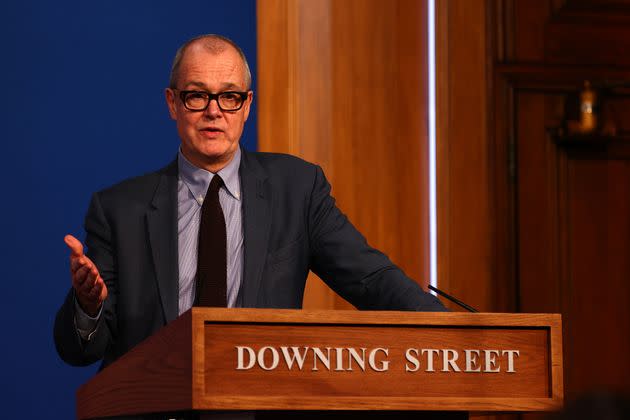Labour Minister Patrick Vallance Calls For Easier Migration From EU To Boost Science Industry

A Labour minister has called for easier migration to the UK from the European Union in an apparent break from government policy.
Patrick Vallance, who was given a life peerage and appointed science minister following the election, said “Brexit was definitely a problem”.
He said he wanted to see the visa rules loosened to make it easier for scientists and their families to live in the UK.
Vallance’s comments put him at odds with Keir Starmer, who has insisted Labour will not bring back freedom of movement with the EU.
Speaking on Radio 4′s World At One, Vallance , who was the government’s chief scientific adviser during the Covid pandemic, said leaving the EU had damaged the competitiveness of the UK science sector.
He said: “Brexit was definitely a problem for science. We were part of a very successful European funding scheme with very large collaborations right the way across Europe which took a setback when we had to leave that scheme, and getting back into it has been a big achievement. I’m really pleased we are back in it.”
That was a reference to the Horizon scheme, a Europe-wide scientific co-operation project which the UK has agreed to rejoin after initially leaving as a result of the Brexit vote.
Asked if he would be pushing the prime minister to agree closer ties with the EU, even if that meant making concessions on free movement, the minister said: “You can’t do the type of science that everyone is trying to do to make progress in isolation.
“You need brains that come with other backgrounds, other thought processes, other training.”
On loosening the visa rules, Vallance said: “There is an opportunity there to try and make this easier for people who come in to do contributions to scientific knowledge creation and to companies.
“We’ve got to be realistic as to how we do that, but we need to be as competitive as other countries in terms of attracting that talent.”
He added: “There are lots of visa issues, including the cost, which is very high at the moment for people coming to the UK, that needs to be looked at.
“We need to think about how we make the environment right for people to come who we want to have here contributing to science.”

